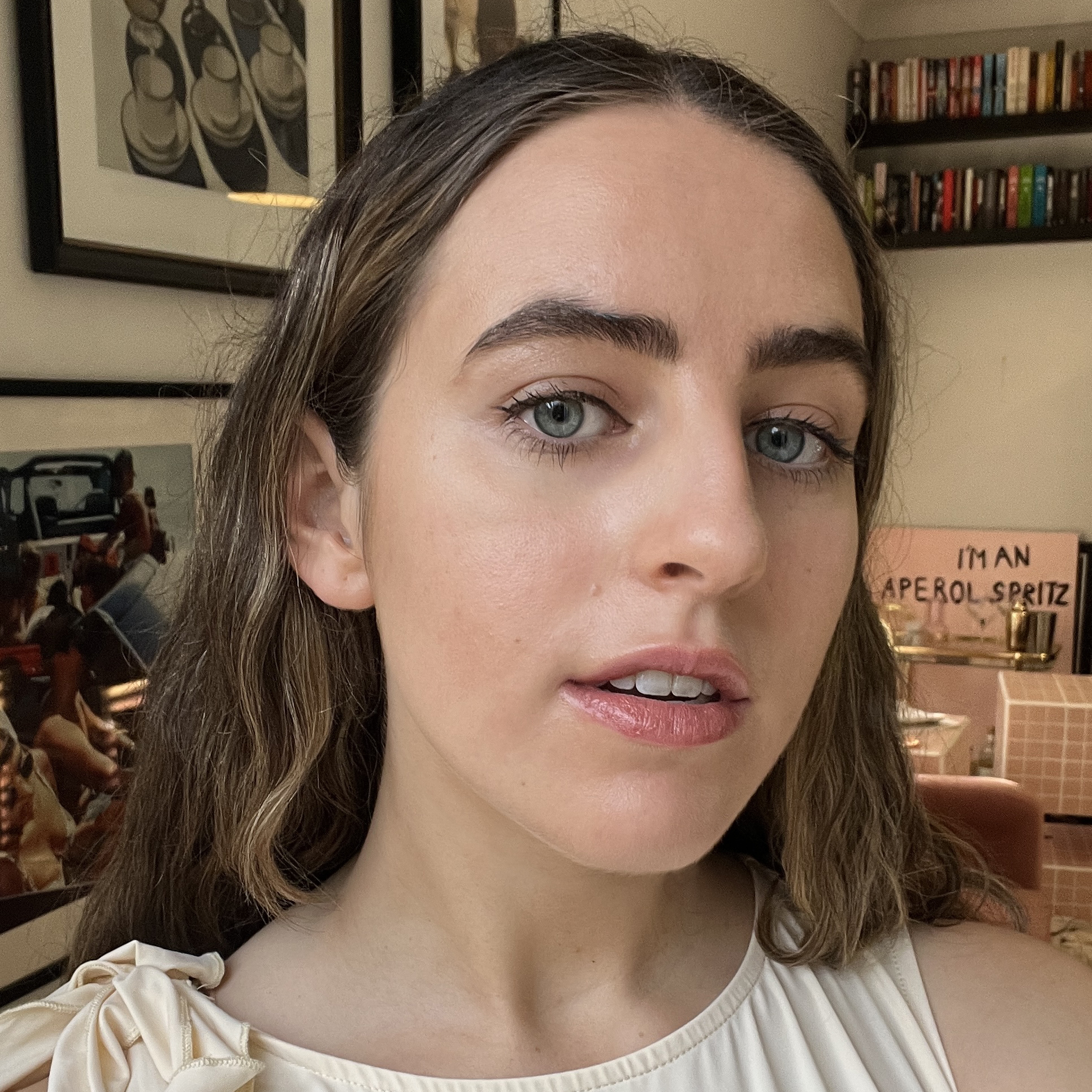News feed
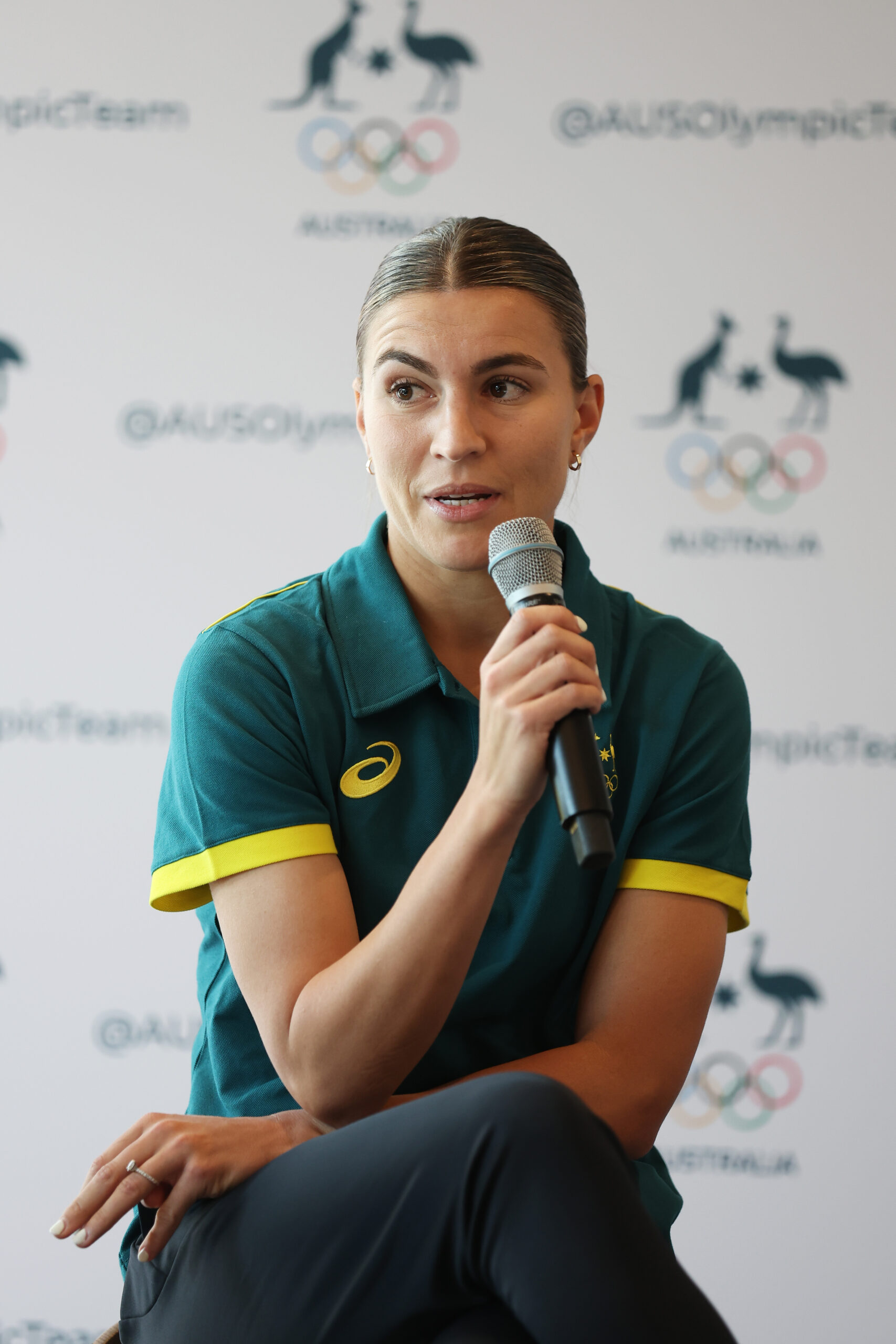
Our lives can be charted as a series of moments. Cast your mind back to an instance last August where, in the pitch-black frigid depths of Sydney winter, Australians rallied around the glow of a television screen at a local watering hole or flocked to the streets to watch our national women’s football team, the Matildas, beat France in a nail-biting penalty shootout.
You might remember the euphoria that erupted as Cortnee Vine’s winning goal advanced Australia, fair and square, to the semi-finals of the 2023 FIFA Women’s World Cup. You may recall the ‘swoosh’ of the ball striking the back of the net. (Though, more accurately, the screams of your fellow spectators as the Matildas progressed to a round never before reached in Australian football history.)
For the Matildas’ freshly-minted captain Steph Catley, a different moment from that evening sticks out in her mind. “There is one moment during the World Cup that I think back on as a ‘we’ve made it’ moment,” the defender tells GRAZIA.
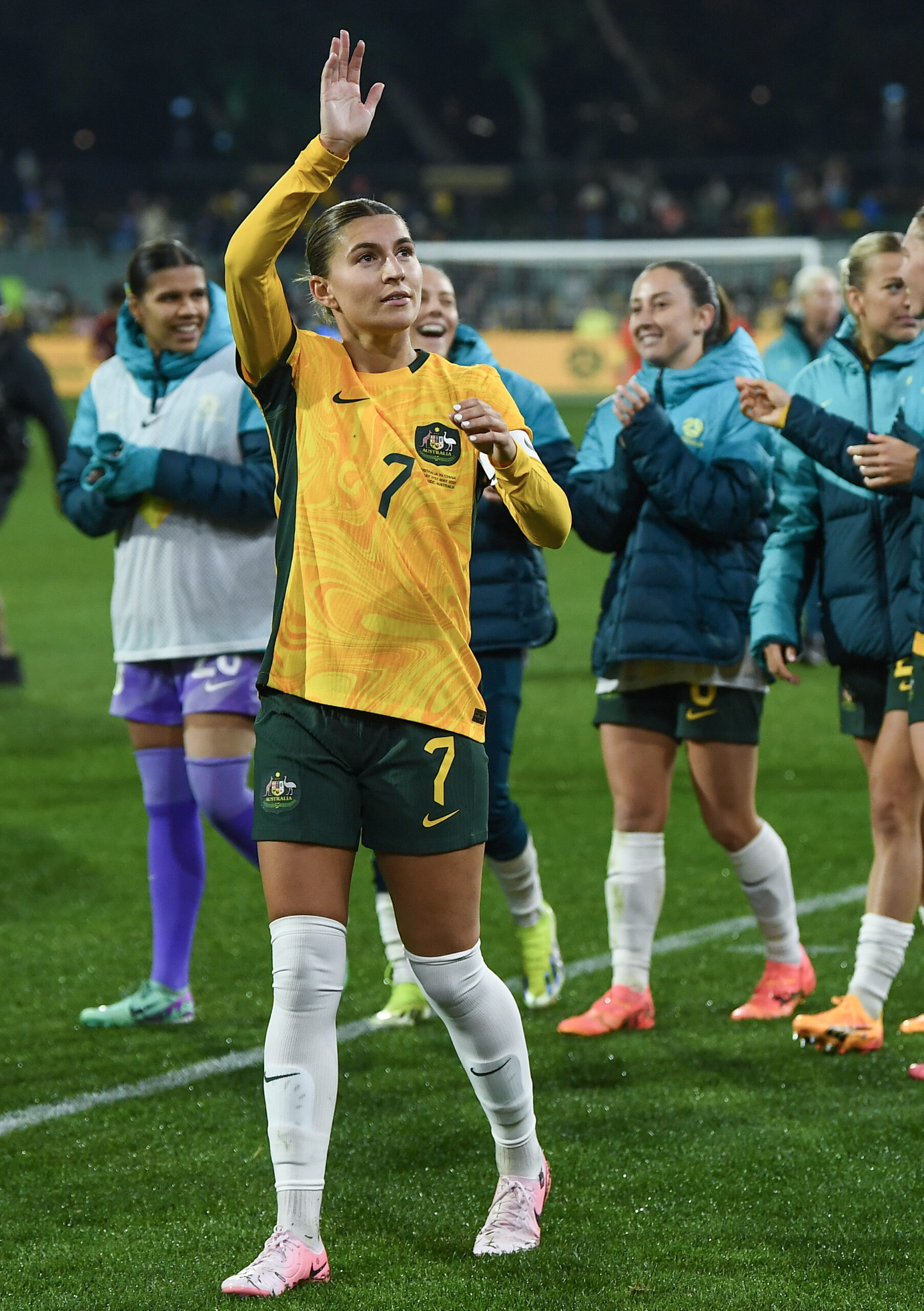
“For most of the World Cup, I tried to avoid social media just to keep my mind focused and fresh and not buy into too much hype or negativity. I just kept away. But after that game, I spoke to my family and they were like, ‘You’ve got to see this video, it’s incredible. You just don’t want to miss it, have a look’. To see the scenes of people watching the penalty shootout and celebrating like it was everything to them was incredible.
“Watching Federation Square, which I’ve always known to be a hub of the most important sporting moments in the country’s history, and the amount of people and the passion there for us was the moment for me,” Catley continues.
“I still think back to seeing those videos. I was in tears. I was overwhelmed with the amount of support. It was something I had never expected to see in my lifetime.”
Catley describes this memory as her proudest achievement during her twelve-year tenure with the Matildas. While camaraderie blanketed the country over those few weeks the tournament ran, it’s this fighting spirit and fervour that has made the Matildas a beloved touchstone in our national fabric. Grit and guts are what also separates the team from their male counterparts, with a new original documentary from streaming platform Stan shedding light on the path past and present players burned to reach the zenith they are today.
Fittingly titled Trailblazers, the 45-minute special chronicles the transformative journey of Australian women’s football. From alumnus who fought against the stigma of the sport as a “kick and giggle game” to inconceivable, albeit true, stories like the 1999 line-up posing for a nude calendar shoot to raise funds and awareness for the sport, each moment in the team’s battle to be taken seriously—and at minimum, on par with the men—is a tear-jerking testament to feminism in football, on and off the pitch.
Catley herself is indisputably a trailblazer and is joined in the documentary by her fellow teammates Sam Kerr (who will not be travelling to Paris for the 2024 Olympics due to a knee injury), Ellie Carpenter, Kyah Simon and Mary Fowler, among others. The timing of this moving story could not be more relevant, as the current squad gears up for their biggest challenge yet: bringing home gold.
Ahead of the Paris Olympics (and packing their custom Beare Park formalwear), Catley got candid with GRAZIA about hopes for the future of women’s sport, her tear-jerking reaction to the FIFA Women’s World Cup response and what the team has to prove in Paris. Read our conversation ahead.
Watch the trailer for Trailblazers, below:
GRAZIA: You’ve had a big month! What is your headspace like at the moment?
Steph Catley: It has been a bit of a whirlwind week. I was playing [in Sydney] at the same time I was playing in Melbourne with Arsenal in a first-of women’s game against the A-League Allstars. I then obviously had the Matildas against China, which was another sell-out, and the Olympics announcement. It’s all sort of come together and now I’m finished for a while so it’s a bit of a weird headspace to be in. But it was a great week and there are so many exciting things coming up.
GRAZIA: What made you want to be involved in the documentary Trailblazers?
SC: Our story as a team from where it began to where it is now is pretty remarkable. To be honest, even when I was doing the interviews for the documentary, I wouldn’t’ve in my wildest dreams imagined that the team would be where it is today. I knew the [2023 FIFA Women’s] World Cup was going to be really special and a game-changing moment, but not to the degree that it did change women’s football, women’s sports and even aspects of gender equality. So, it was a no-brainer that I wanted to be involved and share any knowledge I have on the journey to get to where we are. The documentary obviously showcases a lot of women talking about a pretty amazing story. It’s just such an important message.
GRAZIA: We saw the power Drive to Survive had in introducing a new audience of young females to the sport. Do you believe Trailblazers will have the same effect?
SC: I think so. A lot of people who became Tilly fans at the World Cup probably don’t really know the history, the struggles and where we started from, be it the pay dispute, things we’ve gone through as a team just to get a fair shot, better conditions or things that we now have naturally because of what happened at the World Cup. There are people who joined up as supporters throughout that period who wouldn’t have a clue. So regardless of the fact that [Trailblazers] is a little bit of a love letter for fans to watch some of the heroes talk about the subject, it’s also something that lots of people can learn from to understand the history a little bit better. The messages are not only for women’s football. It’s for women everywhere and gender equality everywhere. The lessons are valuable, no matter what background you come from or if you’re into the sport or not.
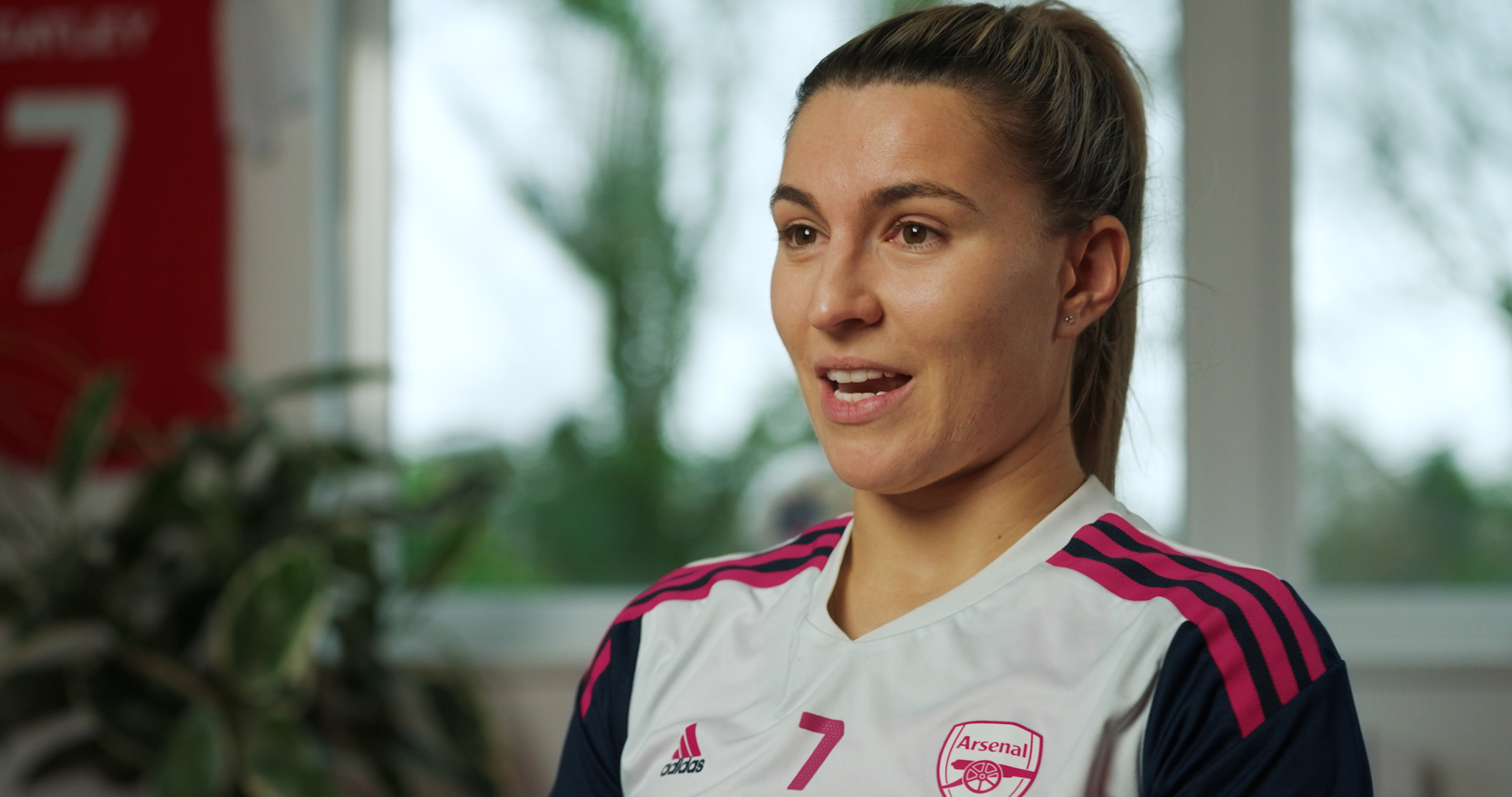
GRAZIA: Trailblazers’ shone a light on the tangible measures past and present players took to achieve gender equality in the sport, especially the 2015 strike which you were a part of. We’re almost a decade on from that moment, how would you describe the changes you’ve seen in the last ten years?
SC: There have been so many big changes. The biggest is just the conditions for us as players. Back then it was obviously a moment where we had played the [2015 FIFA Women’s] World Cup and felt the wave of interest that warranted pay that went along with that. We were offered less than the last contract and we put our foot down because we knew it wasn’t right.
“It was extremely hard. One of the hardest things I’ve ever been through with this team. But, something that has changed the game for the better and all our situations for the better.”
I think back to how we were travelling before playing overseas. At the time I was playing in America and we would travel economy to games in Australia or to Europe and play a couple of days later. Being a younger player then, I was able to do that. But if I had to do it these days and if that was the case, I would have retired if I’m completely honest. There’s no way I could have done the travel that I do from England to Australia to play in big important games and have my body perform at the level I needed to. Or, even be healthy enough to do that. It just puts your body in so much strain. Now we have business class flights. We’re getting equal pay with the Socceroos, the same level of physios and medical staff and the number of staff that they’ve always had. That’s been the biggest change, and it makes a world of difference.
GRAZIA: As you said, the interest in the Matildas has been there since 2015, the 2023 World Cup just spotlighted it further. Now that the viewership, jersey sales and ticket sales confirm what you’ve known all along, do you still feel like the Matildas have something to prove?
SC: It’s interesting. Back then, the US was fighting for all of these things in gender equality, because they were top of the tree. They were winning World Cups and Olympics, and their pay was no way near what they deserved, but they were backing up numbers-wise with crowds, and jersey sales and all those sorts of things. At that time we weren’t at that level. So I think we had to go through that process of fighting for better pay and fighting for equality Now the numbers do stack up. Now we’ve got consistent crowds, jersey sales and everything that sort of goes along with that pay grade.
Those numbers are really amazing. It just proves to haters who come online, and say, ‘No one watches women’s sports, no one wants to see this’ that it’s just not true. People do want to see it. It just needs to be presented in a way that stacks up against the effort that goes into presenting the men’s game. You know, advertising it right, selling tickets right and putting the same amount of love and effort into it. If you package it well and the team performance is exciting to watch and has unique personalities, the product is amazing.
During the World Cup, our team gripped the nation in a way and they fell in love with not only the football but the people that were playing. That’s always been what’s special about our team. I don’t know if there’s anything to prove. We’ve proved interest is there and that people want to watch women’s football. It’s just about maintaining the standards now and keeping the energy and momentum flowing into the game. It really has been a turning point for football in Australia. (Editor’s Note: The Matildas’ semi-final defeat to England in the 2023 Women’s World Cup broke history and became the most-watched television event in Australia on record, drawing 11.15 million viewers.)
GRAZIA: Fellow player Tegan Micah said in the documentary that hearing the experiences of the older players was “black and white” compared to now. As someone who played a major role in knocking down some of the biggest hurdles, what do you hope to see the next generation do with the game?
SC: Just keep it going. I hope the younger generation doesn’t come in with a fixed expectation. Although I say that and I sort of hope that they do. I don’t know. I’m in between. I hope they do appreciate where it has come from and give themselves to the Australian public as much as we have. But, I also think there should be an expectation that this is how it should be for women’s football and women’s sport.
I hope the ball keeps rolling from the outsider’s perspective and they continue to put effort into watching women’s sport and appreciating it for what it is as a separate entity from the men’s game. Just showing up in numbers like they are and basically changing the status quo in Australia. It’s just been so incredible to watch.
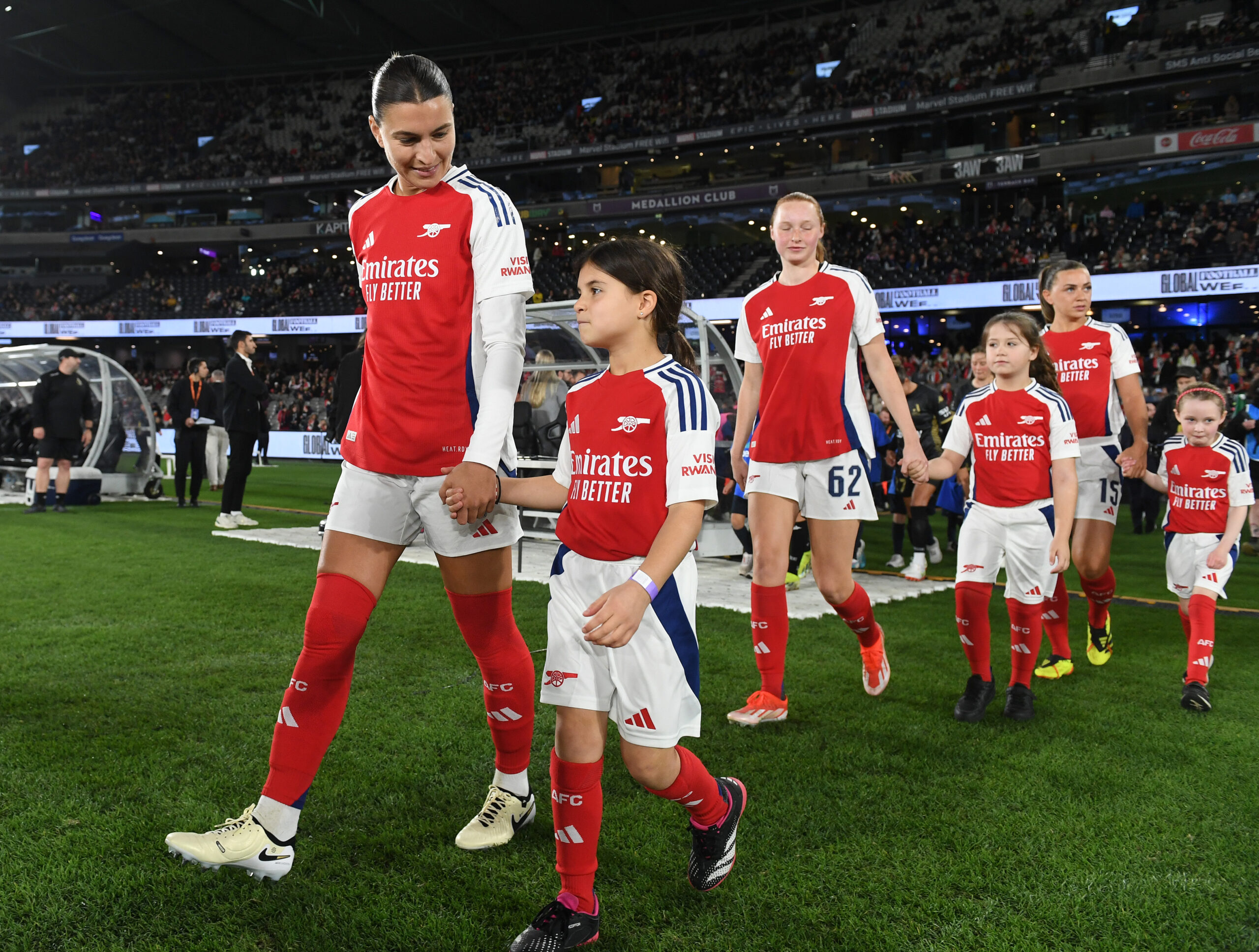
GRAZIA: You say in the documentary, “For our country, we never want to say no.” This embodies the ethos of ‘Til It’s Done’. How much pressure is on now, with you as captain, to bring home gold in Paris?
SC: I don’t think about it that way, especially from a leadership standpoint. I just do me. I’m not overthinking bringing anything home in particular for the country. It’s just what we want as a team. We ultimately want success, we’ve worked so hard for so long to win something significant. We finished fourth in two tournaments now, so we put pressure on ourselves because we’re competitors. We believe in ourselves. We do think we can achieve something amazing in every major tournament we’re in. But, ultimately we have created a legacy in Australia and we should be proud of that. That’s something that we can always say we’ve achieved and always take with us. There is pressure, but we’re just going to do our best and take it one game at a time and hopefully make the country proud.
Trailblazers—made possible with M-POWER, Mecca’s social change initiative championing gender equality—is now available to stream on Stan. The Matildas will play their first Olympic match against Germany on July 25.




